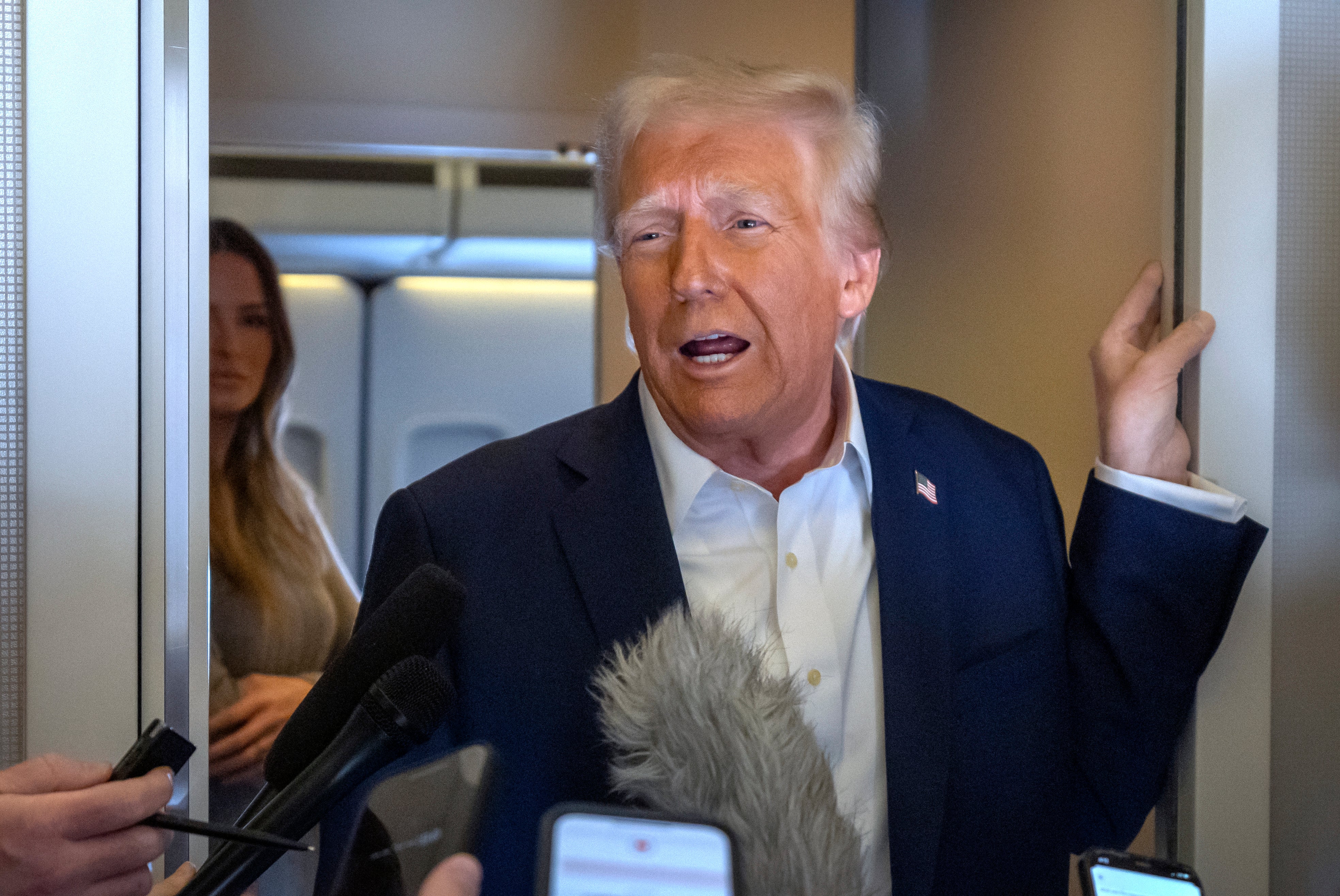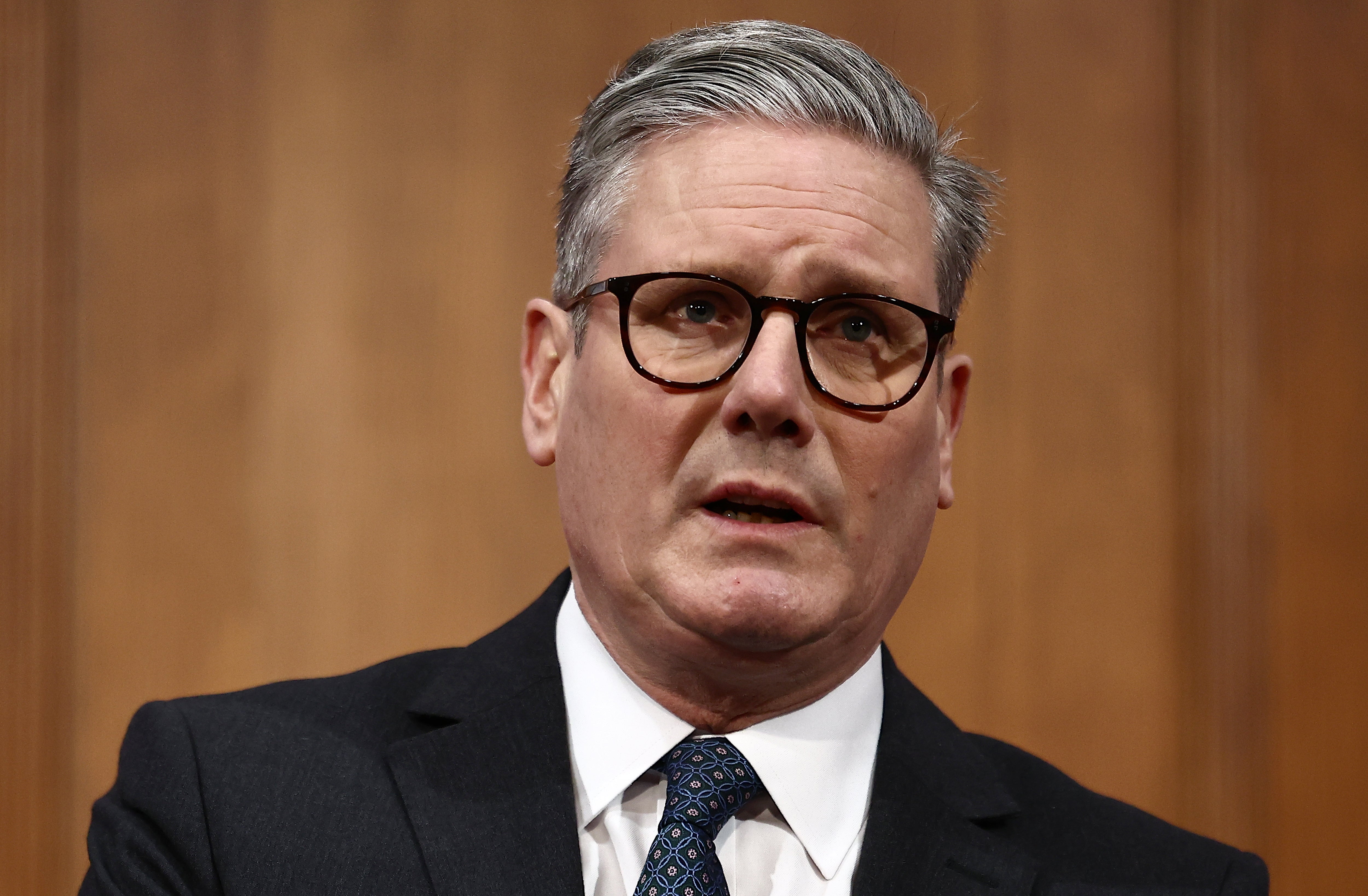What does Trump and Starmer’s relationship look like a week into US presidency?
While the president’s recent remarks may have triggered optimism in Downing Street that tensions are beginning to ease, there are significant stumbling blocks ahead, writes Millie Cooke


Keir Starmer and Donald Trump’s relationship has been far from smooth sailing, with the two having a turbulent dynamic since the Labour leader entered Downing Street. But now Trump is officially back in the White House for his second term – does it look like tensions might finally be thawing?
If Trump’s most recent comments are to be believed, the answer is yes. The president struck an astoundingly positive tone when speaking about Starmer in some comments made to the BBC on board Air Force One on Saturday – saying he has a “very good relationship” with his British counterpart, and adding the prime minister has done a “very good job thus far”.
But that doesn’t paint the whole picture. It comes against the backdrop of a row with Trump’s ally Elon Musk, who has publicly criticised the UK PM, and anger over Labour helping Kamala Harris in the US election.

Where did tensions begin?
When Trump won the US election in November, previous remarks made by senior Labour figures – including Starmer himself – resurfaced, a humiliating reminder for the prime minister of his fractured relationship with the new leader of one of the UK’s most significant allies.
Foreign secretary David Lammy previously called Trump a “neo-Nazi sympathising sociopath”, energy secretary Ed Miliband called him a “racist, misogynistic self-confessed groper” and Wes Streeting, now the health secretary, previously called the president-elect an “odious, sad little man”.
Starmer himself has taken a series of swipes at the Republican, including saying he would not want to have him round for dinner to express his views. In 2019, he tweeted: “An endorsement from Donald Trump tells you everything you need to know about what is wrong with Boris Johnson’s politics.”
Ahead of the US election, the relationship between the two politicians only worsened after it emerged that the Labour Party had sent 100 activists to campaign for Kamala Harris in the US – culminating in Trump accusing Starmer of foreign election interference.

Starmer’s Trump charm offensive
But since his election victory, Starmer has led his party on a charm offensive with the president in the hope of a US trade deal and an attempt to avoid possible tariffs threatened by Trump – so much so that he was warned against the UK “holding his hand” by senior Labour MP Emily Thornberry.
But the charm offensive did not appear to work on Trump-ally Elon Musk, who has launched a number of furious attacks on Starmer’s government, piling pressure on him to order an inquiry into grooming gangs.
Meanwhile, the prime minister failed to secure an invite to Trump’s inauguration, with the attendance of political rivals including Nigel Farage and Priti Patel exacerbating the embarrassment for the PM.
While the president’s recent remarks may have triggered optimism in Downing Street that tensions are beginning to thaw, there are significant stumbling blocks ahead.
Not only is Downing Street braced to respond to the Republican president’s threat of tariffs, but it is also attempting to navigate his threats to pull out of Nato. To make matters worse, there are fears Trump could veto the UK’s proposed deal to hand over the Chagos Islands to Mauritius, and/or reject the proposed US ambassador Peter Mandelson.
With such significant diplomatic challenges looming, the prime minister will be hoping this shift in attitude from Trump continues.
Join our commenting forum
Join thought-provoking conversations, follow other Independent readers and see their replies
Comments
Bookmark popover
Removed from bookmarks